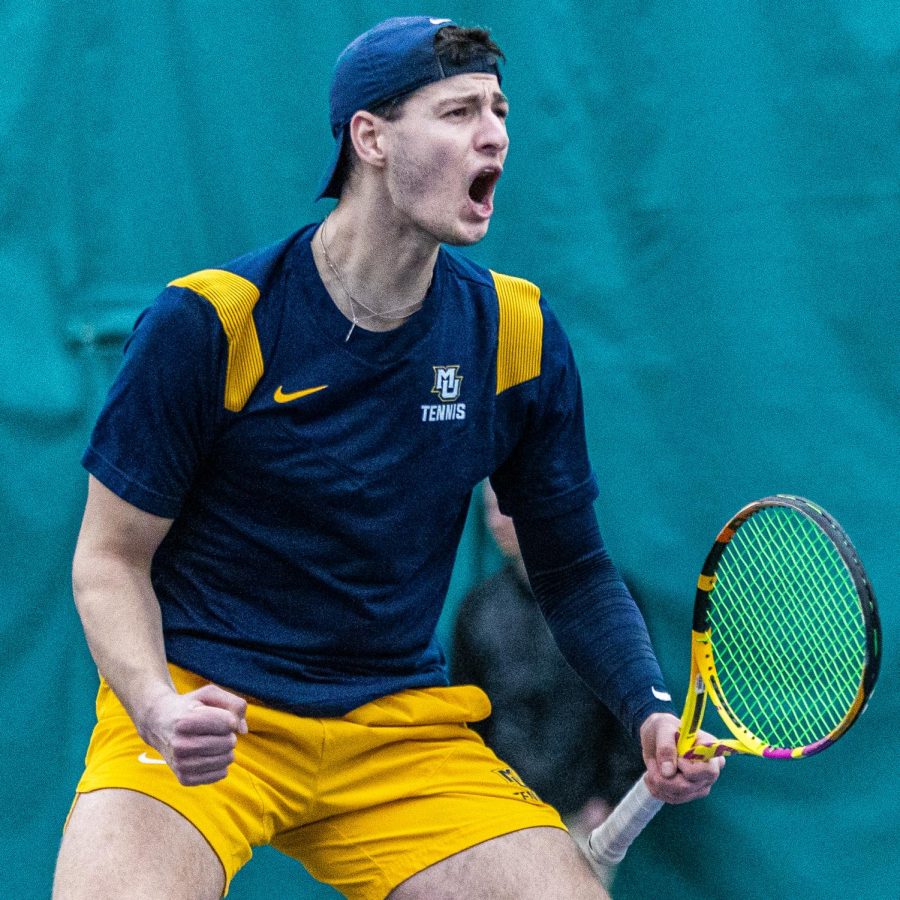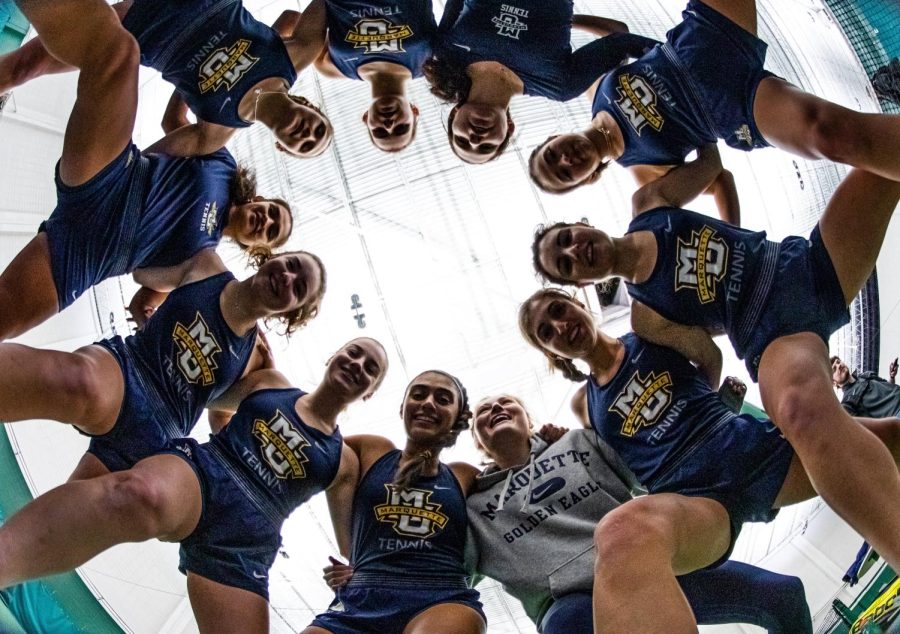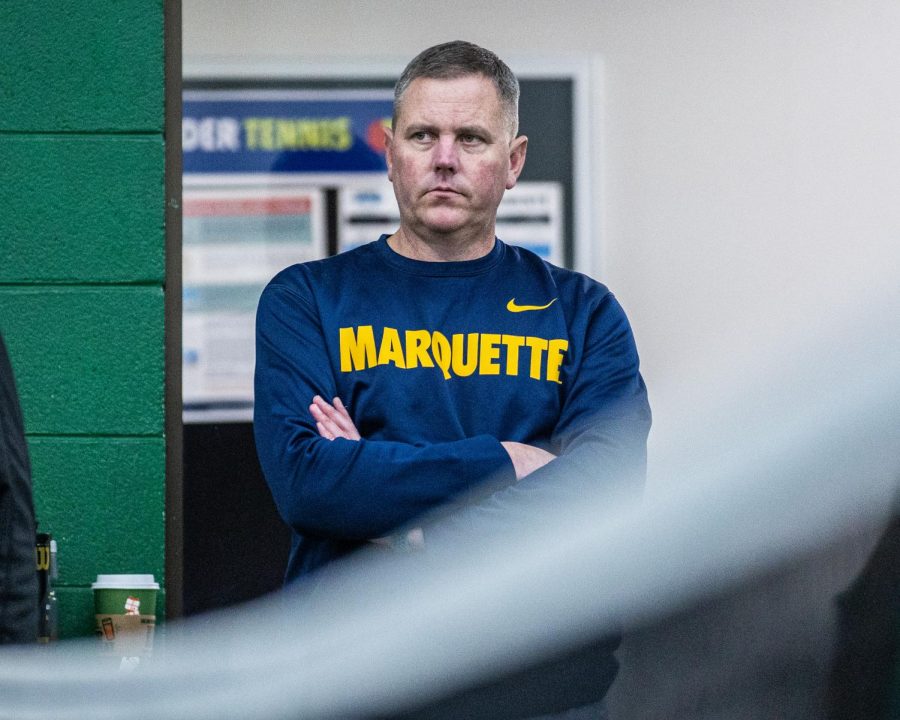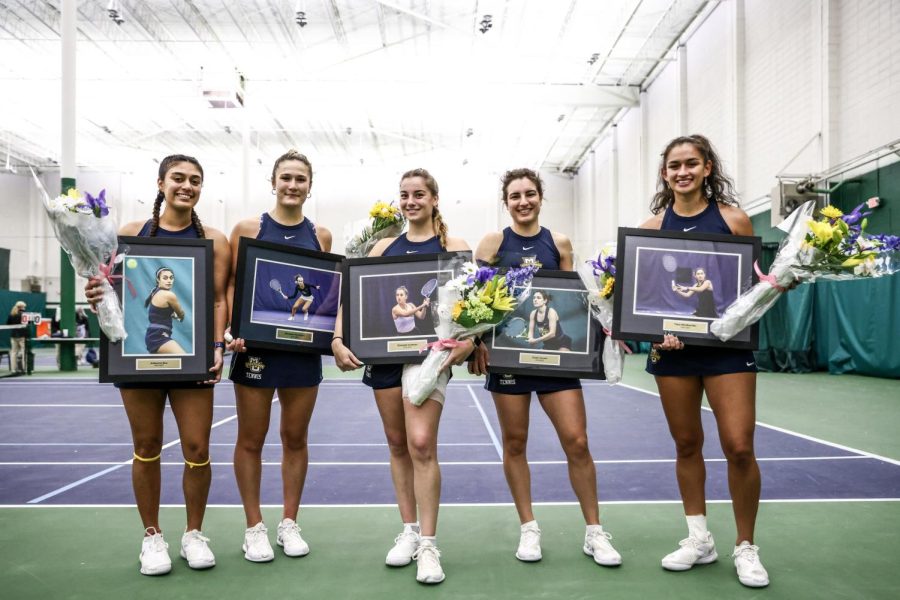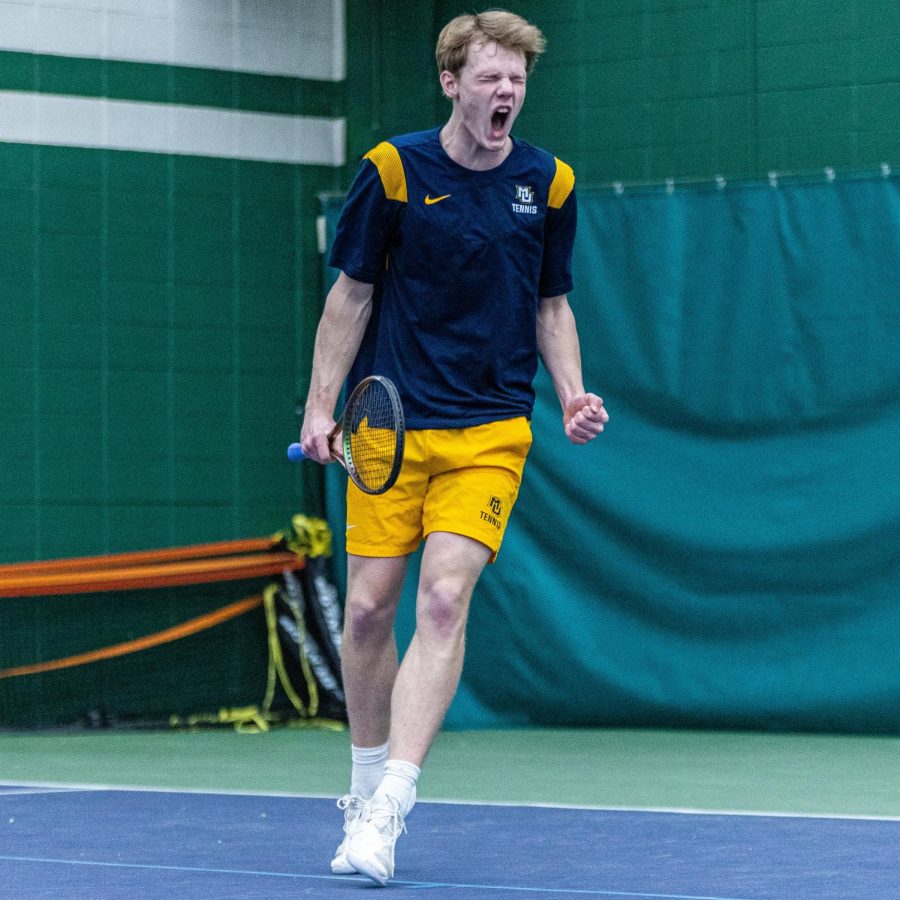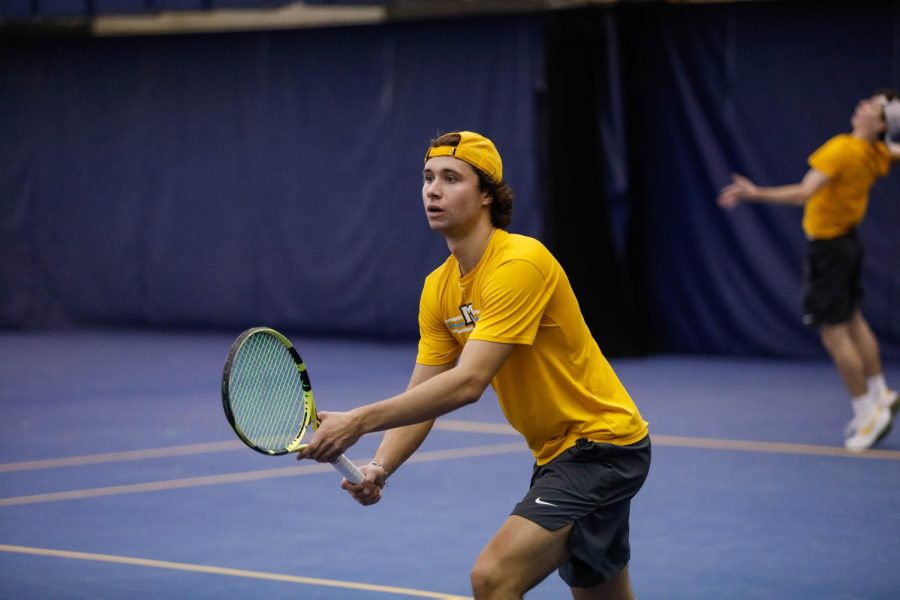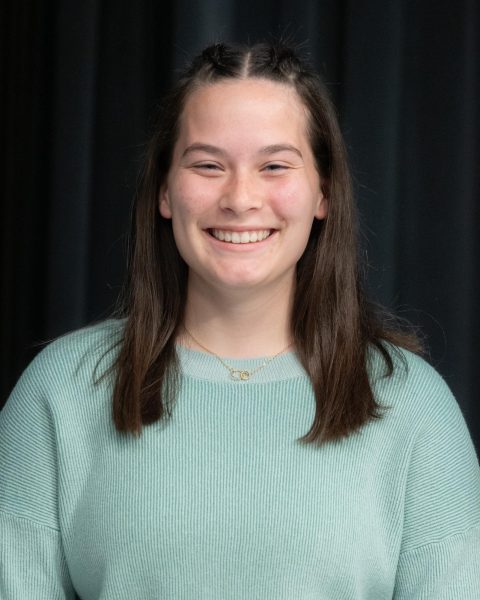Coming into this season, senior Rami Scheetz knew this was going to be his final year donning the blue and gold, despite having extra years of eligibility. Regardless Rami’s mother, Hala, who is a full-time teacher, made sure she was at every single one of his matches, no matter the distance.
“Just having her there and supporting me through a lot of the stuff that I was going through, especially in this last year, it’s not lost on me,” Rami said. “She, my dad and my brother are the three main reasons that I ever achieved anything and that’s very clear.”
Hala is a Syrian immigrant who traveled to the United States at the age of 19 in the pursuit of higher education at Coe College in Cedar Rapids, Iowa.
Hala said making the decision to fly over 6,000 miles away from home was far from easy.
“For a female from the Middle East, to venture that far along from home alone, I didn’t have family here, but just for the purpose of higher education,” Hala said. “It wasn’t an easy decision, but I come from a family that put emphasis on education for men and women equally important.”
Rami said that his mother’s choice to put her education first displayed the nature of her true character.
“Could you imagine doing that now without FaceTime or Skype?” Rami said. “The kind of bravery it took for her to do that, it’s very telling of the type of woman she is.”
Now, over 35 years later, Hala has been teaching English to non-native speakers at a community college in Iowa for 15 years.
“I teach English as a second language now, so it went into the full circle,” Hala said. “To me, language is not just the words you learn, it is the culture that you learn with learning the language. The same thing that I teach my students when I teach them English, and I teach them the American culture.”
This concept was also applied to Rami’s life, as he and his siblings learned to speak fluent Arabic along with being taught about Arab culture by the rest of Hala’s family.
“I was very lucky that after I came (to the US), my brother and sister came to the same college,” Hala said. “Rami and Sami, both of them lived and grew up in learning about that Arab culture, seeing my family and learning what is important about the culture.”
Rami, who has played tennis for 12 years, said that growing up around Arab culture gave him a different perspective while on the court.
“Arab culture is one of a lot of humility,” Rami said. “Being around that culture of nobody’s better than another person was very influential in my upbringing. It applies to sports especially. It’s always like ‘Keep chasing something.’ That’s a very cool thing that culture has provided me.”
After his first year, Rami transferred to Marquette in 2020 when UConn eliminated four athletic programs, including men’s tennis, due to budget cuts within the athletic department.
This gave Rami something else to chase: a new opportunity.
One of the first things that Marquette head coach Steve Rodecap noticed about Rami was his intense passion for tennis.
“First and foremost, he was hungry for an opportunity,” Rodecap said. “His desire to be good in tennis is just remarkable. That was probably one of the things that stood out to me early was how hard he was going to work to make sure he met his goals.”
Junior Ian Brady, Rami’s roommate and teammate, said that Rami’s love for competition is something that he admires about his best friend.
“He’s a hard competitor, and he loves to be out there and compete. A great dude to have on your team,” Brady said. “I always tell him he’s a narcissist because he always has to win. He’s such a competitive person, whether it’s sports or literally anything.”
Despite the adversity that the team faced this season, Hala was there for her son through it all, traveling to every single one of Rami’s matches.
“When you’re an athlete, especially in the sport of tennis, and you see a parent who doesn’t live right down the street and is making the effort to come to away matches and home matches is pretty remarkable,” Rodecap said. “Rami’s support system there was pretty strong. That was a big factor for Rami’s success as well as the support he had behind him from home.”
Rami said that he could not be more thankful for his mother’s constant encouragement throughout his tennis career.
“In tennis, nobody’s really cheering you on,” Rami said. “It’s been that way since I was eight. There’s a thing we like to joke about, Arab mom syndrome. They’re always f—— there no matter what. It can get annoying as s— sometimes, but they’re always there.”
When reflecting on Rami’s success, Hala said there were no words to explain how proud she is of her son.
“You don’t have to be Rami’s mom to know what kind of a mindset he has, to know how hard he works and how diligent he is about everything he does,” Hala said. “The effort that he put in tennis, on the court, off the court, the goals that he put for himself and the leadership that he showed from when he was very young. I firmly believe that he will be successful in anything he decides he wants to do and pursue.”
This story was written by Kaylynn Wright. She can be reached at kaylynn.wright@marquette.edu or on Twitter @KaylynnWrightMU.


